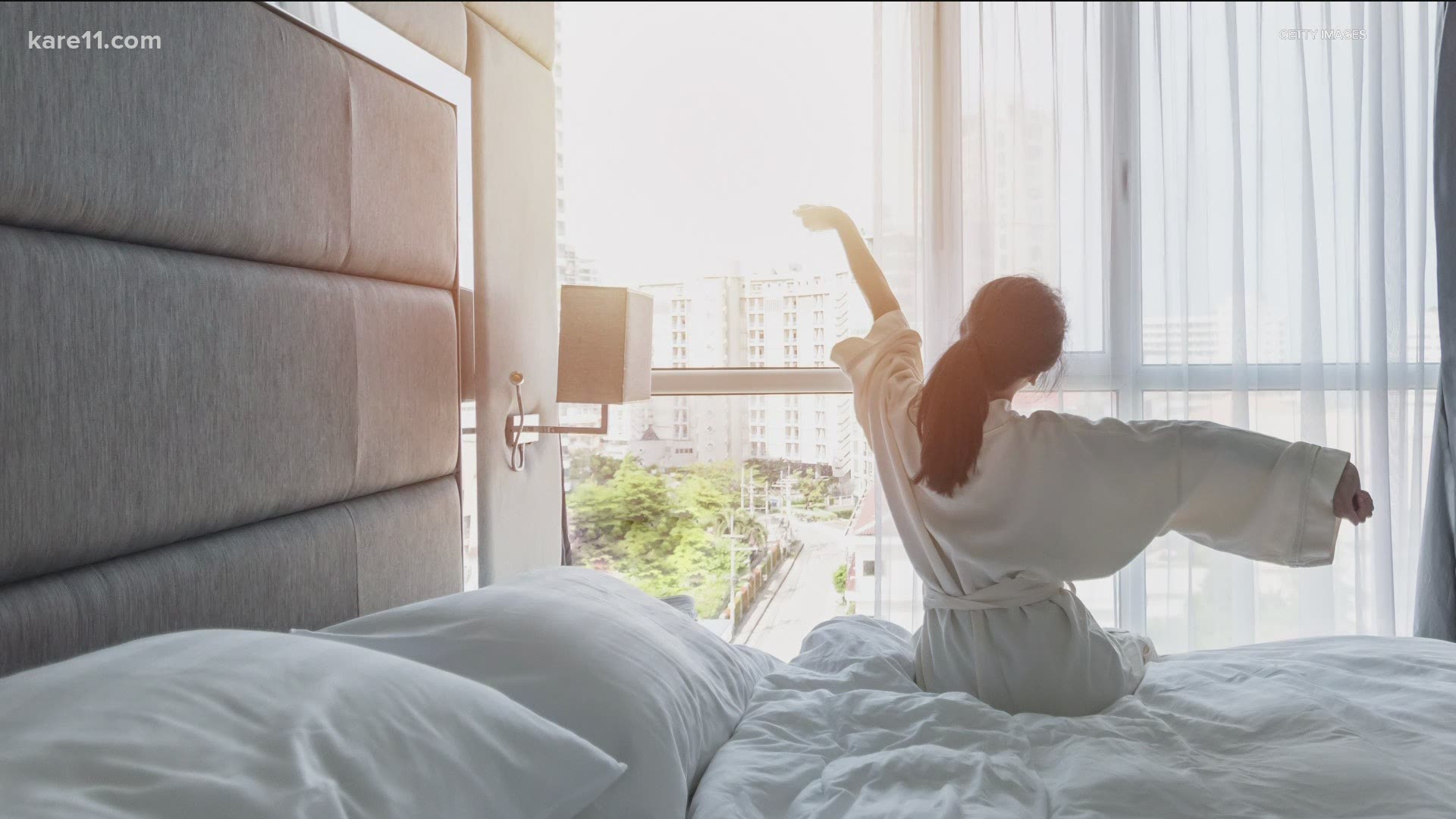MINNEAPOLIS — 2020 has given us a lot of reasons to be stressed and it's affecting our sleep.
"Like any stressful period, we have been seeing more complaints of anxiety and depression which are underpinnings for sleep problems especially in people who have a tendency to have insomnia which is probably in the range of 10-15% of the population," said Dr. Conrad Iber, a sleep specialist, directing the sleep medicine program at M Health Fairview.
Dr. Iber said sleep is incredibly important for emotional regulation. Depending on the person, individuals should get 7-8.5 hours of sleep per night and more for teenagers.
It's important to find and maintain your natural sleep rhythm.
"What is your natural sleep rhythm? It's the time in which you fall asleep naturally without a medication, without alcohol, and it's the time in which you wake up without an alarm clock," Dr. Iber said.
If you don't know your natural sleep rhythm, Dr. Iber recommends reflecting on a previous vacation and noting what time you naturally would go to bed and wake up.
Here are some of Dr. Iber's do's and don'ts:
- Don't consume caffeine after 3 p.m. or more than 3 servings of caffeine/day
- Don't talk about stressful topics before bed
- Don't work in your bedroom
- Don't use screens an hour before bed
- Do exercise
- Do limit alcohol
- Do go outside in the morning
Dr. Iber recommends starting to wind down an hour or two before bed. Putting your electronics in a different room can help you avoid the temptation to check social media or the news. If you're stressed about the election, Dr. Iber said everyone needs to decide what's best for them but that may mean choosing not to watch coverage on election night.
Dr. Iber also recommends not getting into bed until you actually think you're going to fall asleep.
"If you are awake for 20 minutes in bed, that's the point in which you should move out of the room and read quietly in low light," Dr. Iber said.
Dr. Iber does not recommend starting with medications as an initial solution for a sleep problem. If you try all these tips and are still struggling, you might want to see a sleep specialist.
"We know every child gets cranky ... when they don't get sleep," Dr. Iber said. "But we don't think about the fact that we have the same problem and we have to manage ourselves."

